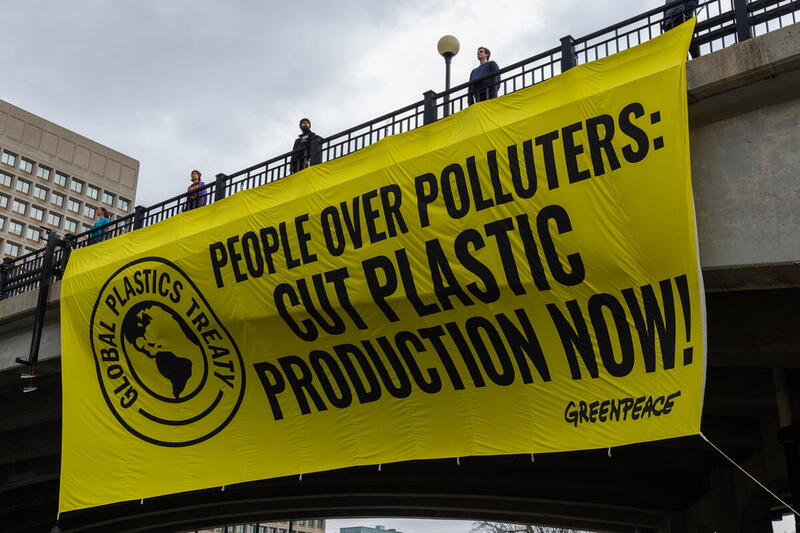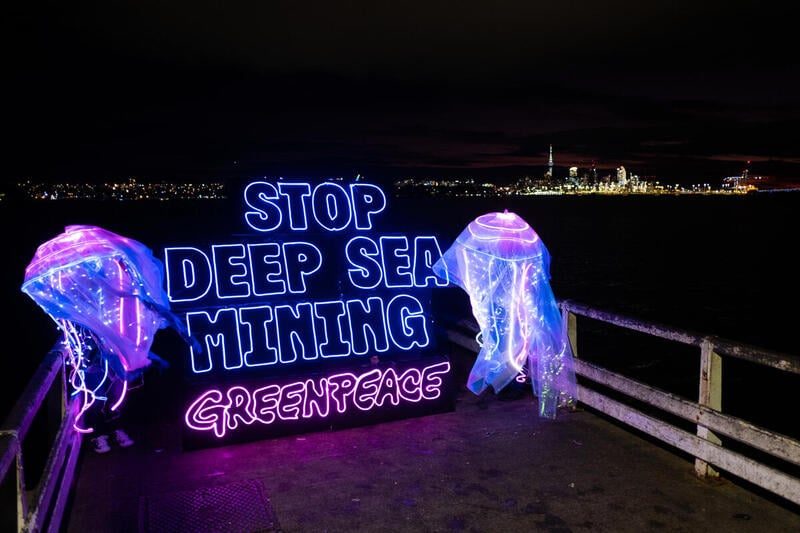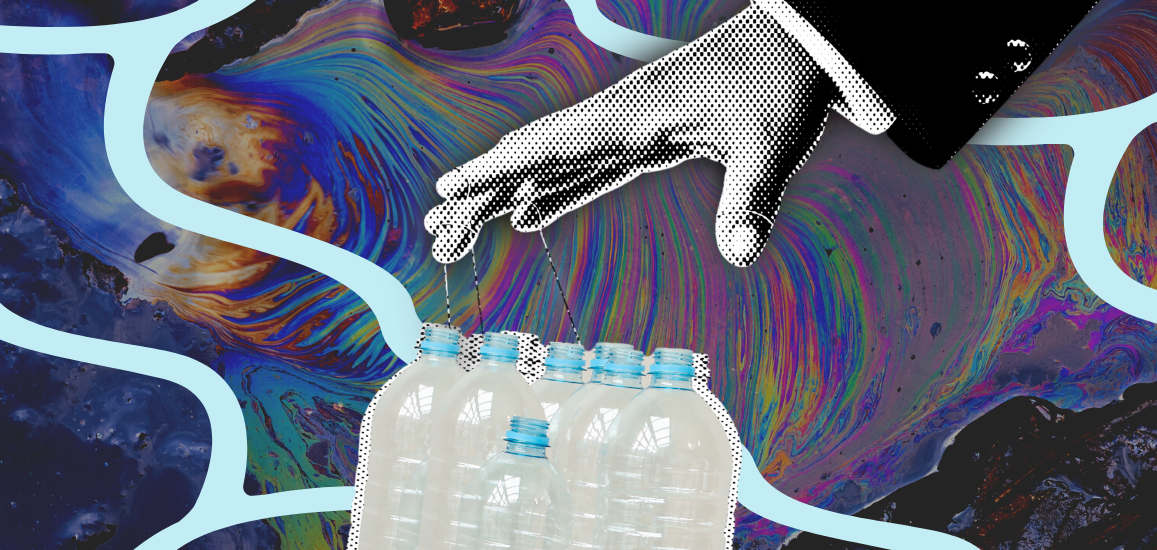
September 13, 2018 (VANCOUVER/TORONTO/MONTRÉAL/HALIFAX) – On World Cleanup Day this Saturday, September 15th, Greenpeace and partner organizations will be adding an extra investigative component to a series of simultaneous cleanup events in four cities by conducting Plastic Polluters Brand Audits. These audits seek to identify the major corporate contributors to plastic waste polluting shorelines, green spaces and communities.
These events are taking place as Minister McKenna calls on Canadians to take action on plastic pollution by joining cleanup events in their communities for the week of September 8th to 15th. This call comes in advance of the G7 Ministerial Meeting on Working Together on Climate Change, Oceans and Clean Energy. Greenpeace was critical of the Ocean Plastics Charter that came out of the June G7 Summit for its heavy reliance on end of pipe solutions like recycling, and for its failure to adequately tackle the gargantuan scale of the plastic pollution crisis.
Greenpeace Canada’s Head of Oceans & Plastics campaign Sarah King: “The Canadian government and corporations need to go beyond half-measures and putting the onus on individuals to tackle corporate waste. Corporations push mass production and consumption of single-use plastic products, leaving little alternative for consumers. We are all impacted by plastic pollution and we need to stop it at the source. Our Plastic Polluters Brand Audits connect companies to the problem and serve as a clear indicator to governments of those who must be held accountable.”
Brand audit events will be taking place on five continents, led by various Greenpeace offices and ally groups in the global Break Free From Plastic movement. Greenpeace Canada is proud to be coordinating audits in Vancouver with Surfrider Foundation Vancouver; in Toronto with Don’t Mess with the Don, Stop Plastics and Strawless Toronto; and in Halifax with Ecology Action Centre. In Montréal, plastic waste will be collected from Mission 10 Tonnes volunteers to be audited on September 16th. Surfrider Pacific Rim will also be conducting an audit in Tofino and sharing results.
Data collected through previous international brand audits confirmed that some of the world’s largest corporations are top contributors to single-use plastic (SUP) pollution worldwide. Many of these corporations including Coca-Cola, Pepsi, Nestle, Procter & Gamble, Pepsi and others sell well-known brands in Canada. The compiled results from the global audits and the Canadian audits will be released in early October.
Quotes from participating organizations:
- Mark Butler, Policy Director at Ecology Action Center Halifax: “The Ecology Action Centre supports national and international policy that enforces Extended Producer Responsibility. The Plastic Charter developed by G7 nations in Charlevoix, Quebec earlier this year does not go far enough to hold industry accountable, and gives far too much flexibility for disposal and incineration options. It is time to place more responsibility on the producers of these products.”
- Brigid Rowan, Co-Chair of Greenpeace Canada’s Board and spokesperson in Halifax: “Annual plastic consumption is now over 320 million tonnes across the globe with more plastic produced in the last ten years than ever before. Individual responsibility is not enough: we need to stop plastic pollution at the source. Driven by short-term and short-sighted economic expediency, corporations choose mass production and consumption of throwaway, single-use plastic products, while our communities and the environment suffer. Plastic Polluters Brand Audits help shine a light on the companies contributing to the plastic epidemic. They also serve as a reminder to governments of the urgent need to hold corporations responsible for their plastic footprints.”
- Marsha Doucette and Haley Anderson, Co-Founders of Strawless Toronto: “Strawless Toronto is a local grassroots initiative working to create a culture shift in reducing how people think about single-use plastics in Toronto. We believe the plastic straw is a good gateway towards greater awareness in the global plastic problem our planet faces.”
- Daniela Palma from Stop Plastics Toronto: “Recycling isn’t working. The only effective way to keep plastic from polluting our waterways is to stop it at its source. Stop Plastics is asking for a ban on single use plastics starting with plastic bags!”
- Irene Van Der Top & Lawrence Warriner, co-founders of Don’t Mess With The Don Toronto: “The Don Valley is full of, not thousands upon thousands, not tens of thousands nor even hundreds of thousands of plastic items of convenience but millions upon millions. That bag we didn’t recycle and dropped instead, that wrapper from our lunch that blew away and bag after bag of garbage we dumped in the ravine thinking it just didn’t matter, they are all still there.”
- Surfrider Foundation Vancouver’s Chair, Yura Kulikov: “As a volunteer based organization, we run beach clean-ups and educational events in Vancouver. Our volunteers collect thousands of branded, single-use plastic items such as water bottles, straws, cigarette butts and food wrappers. While we strongly believe in the power of personal actions, we also believe that governments and producers have the ultimate responsibility to create and promote legislation and production practices forcing a significant reduction of plastic pollution. It is important to collect, sort and recycle plastic items, but it is even more important to change our habits and to stop using single-use plastics. Governments and producers ought to be leading this shift in people’s attitude towards single-use plastics by providing the public with laws and products that positively impact the health of the ocean, now and into the future.”
- Lilly Woodbury, Chapter Manager of Surfrider Pacific Rim: “Surfrider Foundation Pacific Rim Chapter will be leading a cleanup in Tofino, BC at the Annual Bruhwiler Kids Surf Classic, which celebrates youth and surfing in our region. We are thrilled to be participating in the brand audit with Greenpeace and Break Free From Plastic, as plastic is the most common material found on local and remote shorelines in our area. The brand audit and cleanup is also part of Surfrider Pacific Rim’s Best Youth Environmental Stewardship Competition, where youth get to display their stewardship skills to the Surfrider judges during the competition. Three winners will be selected, who will win a beach clean party on Keltsmaht Beach on Vargas Island, along with a tour of the Cedar Coast Field Station.”
In April of this year, Greenpeace Canada launched a Toolkit for a Plastic-free Future offering various ways for people to take action to help stop plastic pollution at the source in their communities. The Toolkit includes a section on Brand Audits that offers a how-to guide on adding a brand audit component to any cleanup.
-END-
Regional press releases are available: Halifax, Toronto and Vancouver.
Media Advisory: click for further details on the timing and locations.
*Save the date: reveal of Canadian Plastic Polluters on October 2nd.*
Download our Community Cleanup & Brand Audit Toolkit
For media queries, to book interviews or request photos, please contact:
Loujain Kurdi, Communications Officer, Greenpeace Canada, +1 (514) 577-6657, [email protected]
Photo and video:
For photos of actions against single-use plastics in each city, click here.
For a wide photo and video collection of ocean plastic pollution, click here.
Notes to editors:
Ahead of World Environment Day in June, the global Break Free From Plastic movement had called for G7 countries to pass binding reduction targets and bans on single-use plastics, invest in new product delivery models based on reuse, and hold polluting corporations accountable.
Billions of single-use, throwaway plastic packaged products and disposable plastic items are produced, used and become trash every year in Canada. Only 10 to 12% of the plastic produced yearly is recycled. The rest goes to landfill, is burned or ends up in the environment. The Canadian government notes that in 2010, Canada released 8000 tonnes of plastic waste into the oceans from land, contributing to up to 12.7 million tonnes entering the oceans globally each year.




